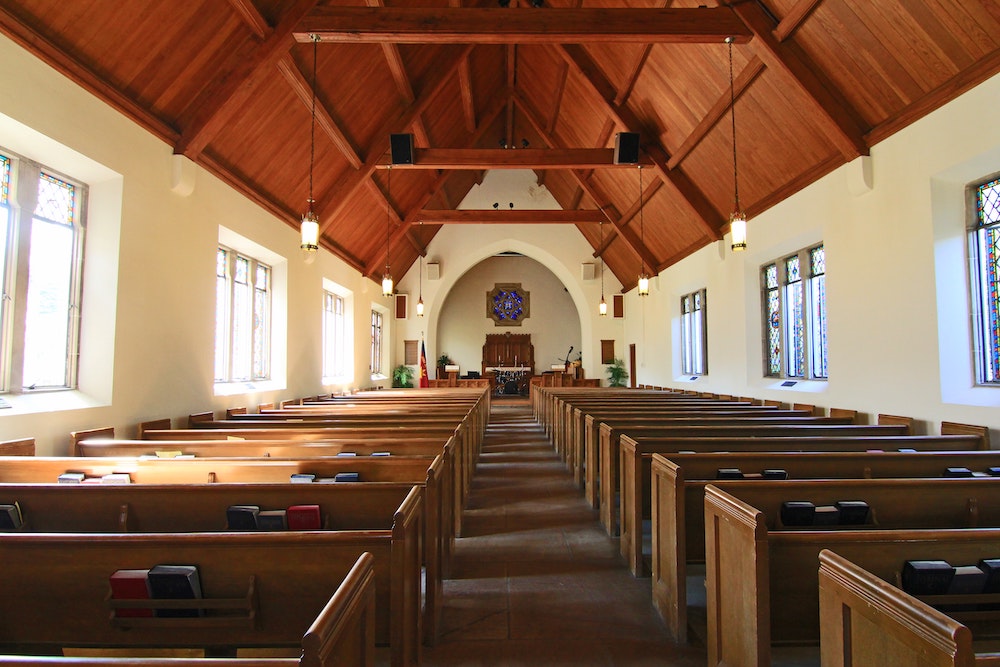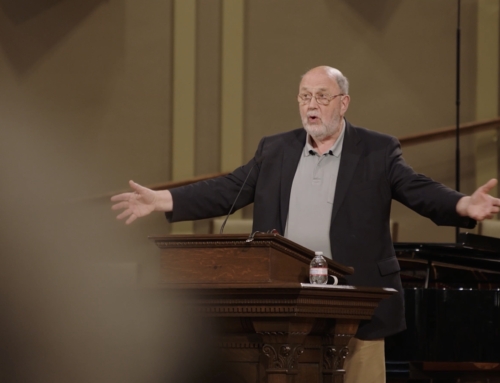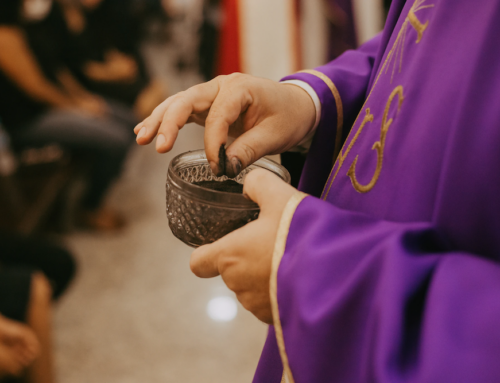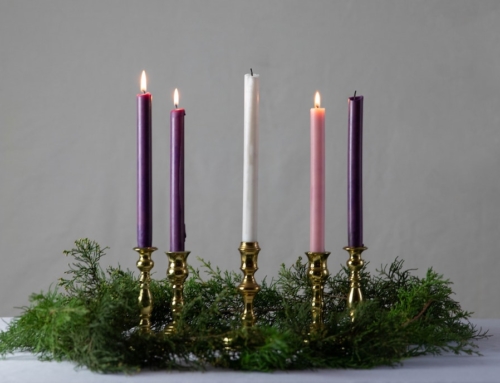In Prof. N.T. Wright’s course, ‘Paul and His Letter to the Galatians’, you will explore how a new Jesus-shaped world had come to birth in the Messiah that changed everything. Indeed, this was the one whom the prophet Isaiah envisioned as the coming Prince of Peace. This Jesus of Nazareth was the one of whom Luke recorded the angels praising and giving glory to God, declaring peace on earth to those on whom his favour rests.
Somewhat surprisingly, we see at the very outset of Paul’s letter that there was much confusion and dispute over the meaning of the Good News that Jesus had announced just a couple of decades prior to the occasion of Paul’s writing.
A quick glance at the experience of the early church in the first century seems to be anything but peaceful.
There was much confusion and dispute over the meaning of the Good News that Jesus had announced just a couple of decades prior to the occasion of Paul’s writing. Click To TweetWe can imagine that the ways in which the Gospel was contested in the early church engendered an atmosphere of agitation that seems antithetical to peace. In part, this line of thinking connotes peace with passivity, because as Baker’s Evangelical Dictionary of Biblical Theology describes, the English word ‘peace’ conjures images ‘showing an absence of civil disturbance or hostilities, or a personality free from internal and external strife’.
Yet, the biblical concept of peace is broader and derives from the Jewish idea, which means ‘to be complete’ or ‘to be sound’.
Identity Markers, Then and Now
Much of Paul’s experience of suffering could be attributed to the trouble in working out disputes concerning what the identity markers of Christian membership should now look like. Pagan or ‘Gentile’ converts found themselves under pressure to get circumcised so they could be like the Jewish population there. In the Jewish culture, circumcision was the badge of membership. In essence, the dominant religious power-brokers were saying to non-Jewish converts, You need to become one of us, that is ‘Jewish’, in order to be included in the family of God.
And though our ‘churchly’ conversations and debates may have moved on from circumcision according to Torah, it seems as though many in the Church are often still grappling over ‘identity markers’. We also struggle to sort out the tensions which have categorised people into ‘us’ versus ‘them’.
Paul writes to the church in Galatia that ethnic, gendered, and class distinctions had been abolished, having been transformed by the Law now written on the heart of God’s family by the Spirit:
There is no longer Jew or Greek; there is no longer slave or free; there is no ‘male and female’; you are all one in the Messiah, Jesus.
And, if you belong to the Messiah, you are Abraham’s family. You stand to inherit the promise.
Galatians 3:28-29 KNT
Though the death and resurrection of Jesus were in recent memory, the Apostle was already challenging some of the earliest followers who were quickly deserting the faith for ‘a different gospel’ (Gal 1:6). Indeed, the early church was plunged into confusion and threatened by chaos brought on by those preaching a different message that perverted the gospel of Christ (1:7).
Prof. Wright observes that the Jesus-shaped Kingdom, which the Apostle Paul announced as Good News to church of Galatia, was going to be a difficult place to live in. In fact, not only was it going to be a big challenge, but it would also be a very contested and often dangerous space as Spirit-filled people of God’s Kingdom embodying and inhabiting the intersection of heaven and earth.
Back to the Future
In this course, you will explore why Paul was so opposed to the message that circumcision was the identity marker that determined whether one was a member of the family of God. Prof. Wright will stimulate your thinking and learning about the ways in which these issues still linger in the Church today.
For example, Paul was saying to the Galatians, If you think circumcision—a badge of membership—is needed to become part of the Jewish family, then what you are saying is that you are joining the family of Abraham as it was before Jesus came.
You are living in the past and what you need to be doing instead is ‘going back to the future’.
For Paul, what happened with the coming of Jesus was not just a pointer to the new age, but the actual launching of that new age: the Kingdom of God is on earth now as it is in heaven.
What happened when Jesus was crucified was not just the death of one human being. It was a cosmic shift in which those who believe in Jesus find themselves caught up. God’s people have been redefined by God around the Messiah, Jesus (Gal 6:16).
Being ‘in the Messiah’, incorporated into the body of Jesus Christ means that when God looks at the Messiah, God sees him and all his family—all those who now belong to him.
The New Testament Vision for the Church
After considering these ideas I have been reflecting on this question, ‘What role should the Church play in responding to injustice related to ethnic bias?’
In my own life, and in the context of my preaching and teaching ministry I am becoming more aware of the ways in which I might amplify how the Gospel relates to issues of ethnicity and justice. If the church as the multi-ethnic community of God was the original New Testament vision, where have I suppressed this vision and roadblocked (knowingly or unknowingly) another’s pathway as I cling to comfort and the privileges I have?
I am becoming more aware of the ways in which I might amplify how the Gospel relates to issues of ethnicity and justice. Click To TweetAs Prof. Wright teaches, we as individuals are the new creation that must heed Paul’s exhortation of radical mutual welcome of which the church is an advance signpost. Yet, I find myself asking what I might do in practice, how and where? I fear that if I do not take actionable steps, then I will continue to participate in the same cycle where nothing ever changes.
What Can I Do?
Here are some additional questions I am asking of myself: ‘What have I overlooked, tolerated, left unsaid, or excused, for the sake of people-pleasing or keeping the peace?’
I am reflecting on the ways in which Paul talked of his own ‘mistakes’ (Gal 2:13; 1Cor 15:9; Acts 26:9-11). I am prayerfully looking in the mirror and asking God to reveal where I need to have a change of heart and mind. I am praying for the courage to put meat on the bones of my faith as I listen and learn from the voices and leadership of people of color regarding the ways in which I might act with intention against racism. It cannot be enough for me to be against racial injustice in theory.
Rich Villodas, a pastor in Queens, New York, describes a problem he sees in many churches:
…While not every church is going to reflect multi-ethnicity, predominantly white churches in predominantly white neighborhoods can still do their part in connecting the gospel to race.
In these kind of settings, for many (if not most) of the churches, the spectrum of interest in this matter ranges from apathetic ignorance to hardened resistance against any thought of proclaiming the gospel over matters of racial hostility. Yet, I believe that many white, homogeneous churches and leaders want to do something about it. They often just don’t know where to begin.
Villodas offers some good first steps in this article 5 Ways Your Predominantly White Church Can Work for Racial Justice and Reconciliation.
Finally, I am asking what next steps might I need to take that will concretely make a change for the sake of the equity that Christ victoriously achieved when he tore down the dividing line of hostility (Eph 2:14).
Jennifer Loop
Jennifer Loop
Latest posts by Jennifer Loop (see all)
- Why You Need Lent: Two Perspectives - February 22, 2023
- How (Not) To Understand a Parable - October 20, 2022
- What People are Saying About ‘Ethnicity, Justice and the People of God’ - February 10, 2022







